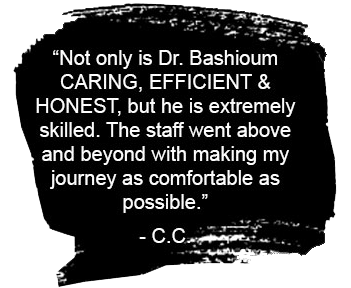Revision Surgery: When to Consider
March 21st, 2011
All surgeons want you to have the best result possible after any surgery. Additionally, plastic surgeons want their patients to also look better. I believe that the aesthetic nature of plastic and reconstructive medical training, appeals to people drawn to the artistry and sculpting of this particular specialty. While cosmetic surgery can offer patients significant improvements in their appearance, unfortunately, perfect results are not possible. Our bodies are not symmetric and individual anatomy differs from one person to the next. Variations in surgical results do occur.
Some results are better than others. There are many factors that contribute to a less than desirable result. These may include, surgical problems, or not following strict after-care instructions, which may lead to unwanted bleeding or infection. Recovery is not the same for everyone and we all heal differently. Some patients make more scar tissue, which may contribute to imperfect results after surgery.
When should surgery be revised for an unsatisfactory result? This relates to internal healing. Internal healing like scar maturation takes from 6 months to a year. During this recovery period, dramatic changes take place, often revealing the expected appearance. In my experience, some unsatisfied patients are a little impatient and perhaps too quick to judge. It takes time and patience to see final results with most cosmetic surgery results. However, if after 6 months there is not significant improvement, I suggest visiting with your surgeon about the possibility of revision (redoing) surgery.
Mirror, Mirror. Unrealistic Expectations?
May 24th, 2010
There is an old saying among general surgeons, “If you don’t operate, you will not have complications.”
The same can be said of cosmetic surgical results. On occasion, the results of surgery do not go according to plan. All surgeons have surgical results that are less than optimal. Occasionally some surgery may benefit from a secondary surgery to improve the result.
The causes of less than optimum results are complex. Complications such as unwanted bleeding or infection may occur, compromising recovery and healing. Sometimes patients do not follow after care instructions as carefully as they could, which can lead to problems. Pre-existing medical conditions may also interfere with healing and scarring. The surgical design may just not work out for a particular patient. Generally, the final outcome is a combination due to some or all of these factors.
Revision surgery is often difficult. Changes in anatomy are normal following surgery, so that must be taken into account when planning revised surgery. Feelings of disappointment and possible misgivings by the patient are not to be over-looked. Expectations of perfection may present undue anxiety during recovery, as a result of unrealistic goals. It is necessary to understand the limitations of the procedure. Even the most talented surgeon is unlikely to transform prospective patients into their Hollywood idols. Communication between patient and physician is key to maintaining healthy expectations of having surgery.
Surgical results are rarely perfect. The decision to perform revisional surgery is generally based on the likelihood of improvement, weighed against the risk of making things worse.
